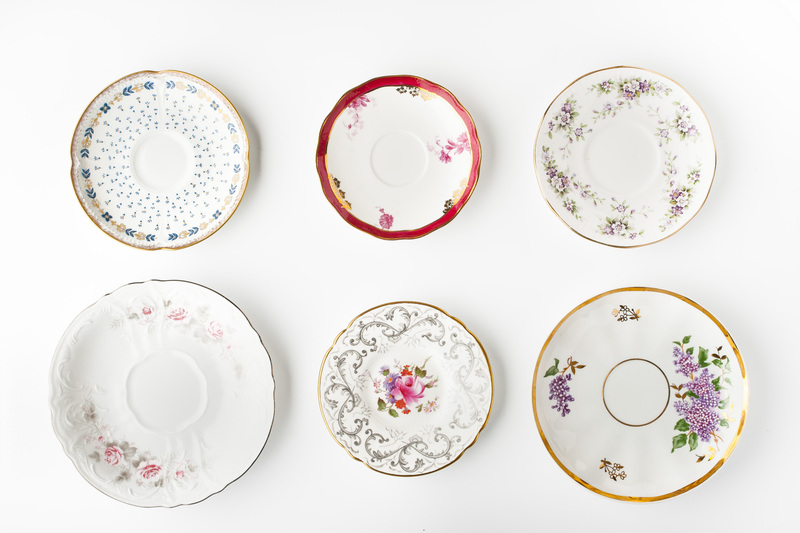Leading the Way in Eco-Friendly Pot Disposal
The modern gardening and horticulture industry faces a growing challenge: what do we do with the millions of plastic pots and containers left behind after plants are purchased and repotted? Left unchecked, these pots often end up in landfills, taking centuries to decompose and harming our environment. Thankfully, a new wave of sustainable solutions and community-driven initiatives are leading the way in eco-friendly pot disposal. This article explores innovative practices, breaks down sustainable alternatives, and guides both individuals and businesses toward a greener future.
Understanding the Issue: The Environmental Impact of Plant Pots
Plastic plant pots have been a staple of the gardening world for decades. They're lightweight, durable, and inexpensive. However, their convenience comes at a considerable ecological cost. Most plastic pots are made from non-biodegradable materials such as polypropylene or polystyrene, which can persist in the environment for hundreds of years.
- Landfill Overload: Millions of used plant pots are discarded every year, many of which wind up in landfills.
- Recycling Challenges: Not all recycling programs accept plastic pots due to the complexity of cleaning and sorting them, and the inconsistent types of plastic used.
- Microplastic Pollution: As pots break down slowly, they may release microplastics into the soil and waterways, posing risks to wildlife and humans.

Eco-Friendly Pot Disposal: Why It Matters
Leading the way in eco-friendly pot disposal isn't just a trend--it's a crucial step in reducing environmental impact and promoting sustainability in our homes and businesses. By adopting more responsible methods for disposing of or reusing plant pots, we help:
- Reduce waste in our local landfills
- Conserve valuable resources
- Protect wildlife and ecosystems
- Build awareness in the gardening and horticulture community
The Business Case for Eco-Conscious Pot Disposal
Sustainability initiatives aren't just good for the planet--they can enhance brand reputation and even attract a new segment of eco-aware customers. Nurseries and garden centers are increasingly regarded as community leaders in responsible pot disposal thanks to recycling drives, green packaging, and customer education.
Innovative Solutions: How the Industry Is Leading the Way
Across the globe, organizations and individuals are spearheading efforts to minimize the environmental footprint of plant pots. Some groundbreaking approaches include:
1. Recycling Programs and Drop-Off Stations
One of the most accessible solutions for eco-friendly pot disposal is through plastic pot recycling programs. Many local authorities, garden centers, and botanical gardens now provide drop-off stations where gardeners can return their used pots for proper recycling.
- Clean and Return: Customers are encouraged to wash their plastic pots and return them to participating facilities for recycling.
- Partnerships with Manufacturers: Some businesses partner with pot manufacturers to ensure collected pots are properly processed and reused in the production stream.
2. Reusing and Repurposing Plant Pots
Before discarding, consider creative ways to reuse your plant pots. This approach reduces demand for new plastics and encourages a waste-not mindset.
- Home Gardening: Use cleaned pots for starting seeds, propagating cuttings, or gifting plants to friends and neighbors.
- Community Projects: Donate surplus pots to local schools, community gardens, or horticultural societies, supporting education and green initiatives.
- DIY Crafts: Transform old pots into decorative projects, storage containers, or bird feeders--the possibilities are nearly endless!
3. Compostable and Biodegradable Pot Alternatives
Advances in material science are spurring the creation of eco-friendly plant pot options that breakdown naturally over time. These alternatives are made from biodegradable substances like peat, coir, rice hulls, or paper pulp. Key benefits include:
- Zero long-term waste: They can be planted directly in the soil, decomposing to nourish plants.
- Minimized microplastic risk: No plastics means no risk of polluting microplastics leaching into soil or water.
- Renewable materials: Most are made from agricultural byproducts or recycled paper, further reducing their footprint.
4. Pot Take-Back Initiatives
Leading nurseries and garden centers are implementing pot take-back programs, where consumers can bring in their used pots in exchange for discounts or store credit. These collected pots are sterilized, reused, or properly recycled.
The Role of Technology in Eco-Friendly Pot Disposal
Embracing technology is helping the gardening industry lead the way in sustainable pot disposal. Some noteworthy advancements include:
- Recycling Sorting Robotics: Automated systems can now identify and sort different types of plastics, improving the efficiency and viability of recycling used plant pots.
- QR Code Tracking: Some sustainable pot manufacturers embed QR codes in their products. Scanned with a smartphone, these codes provide disposal instructions and connect users to local recycling centers.
- Bioplastic Innovations: Labs are developing biodegradable plastics from renewable resources, providing an effective replacement for traditional petroleum-based plastics.
How You Can Lead the Way in Eco-Friendly Pot Disposal
Individuals play a crucial role in the push for greener disposal methods. Whether you're a hobbyist gardener or a commercial grower, you can set a positive example by:
- Choosing Sustainable Products: Opt for biodegradable or compostable plant pots when shopping for new plants or starting seeds.
- Participating in Local Recycling: Return used plastic pots to community collection points and support stores offering take-back programs.
- Practicing Pot Reuse: Find creative ways to reuse or donate pots rather than throwing them away.
- Spreading Awareness: Discuss eco-friendly pot disposal with friends and family, share resources, and advocate for change at your local garden center.
Small changes can add up to a big impact. By making conscious choices and encouraging others to do the same, we can significantly reduce plastic waste and promote a more environmentally-friendly gardening culture.
Sustainable Gardening: Eco-Friendly Pot Disposal Best Practices
- Always clean and dry pots before recycling to prevent contamination.
- Check labels for the recycling symbol and type of plastic--#2 (HDPE) and #5 (PP) are typically recyclable, but always confirm with your local facility.
- Dedicate a storage space to collect clean pots until your next recycling drop-off.
- Support nurseries and stores with robust recycling or take-back programs.
- Prioritize buying plants in compostable pots or ask your local garden supplier about sustainable alternatives.
Case Studies: Eco-Friendly Pot Disposal in Action
Garden Center Innovations
Green Thumb Nurseries in California operates a large-scale pot return system, allowing customers to bring back any used plastic pots. These pots are cleaned, sterilized, and reused in the nursery's own propagation beds or sent to a local recycler. Their program has diverted thousands of pounds of plastic from landfills annually.
Community Compostable Pot Projects
In the United Kingdom, several community gardens and urban farms have switched to pots made from pressed coir and paper. These initiatives not only reduce plastic use but also educate gardeners about sustainable practices at every step of the growing process.
Manufacturing Partnerships
Major pot producers now collaborate with gardening retailers to develop closed-loop recycling systems. This approach keeps old pots out of landfills and uses them to create new products, ensuring a continuous cycle of sustainability.
Looking Ahead: The Future of Pot Disposal Sustainability
The future is bright for eco-friendly pot disposal. With increasing public awareness, evolving technology, and collective action, the horticulture industry is progressing toward zero-waste gardening.
- Government Incentives and Legislation: Many regions are introducing policies that encourage or require recycling and compostable packaging for horticultural products.
- Continued Material Innovation: Research into new bioplastics and plant-based materials promises even more sustainable pot alternatives in the coming years.
- Greater Consumer Engagement: The demand for green gardening products continues to grow, incentivizing businesses to innovate and expand their eco-friendly offerings.

Conclusion: Join the Movement for a Greener Tomorrow
Leading the way in eco-friendly pot disposal is about more than keeping plastics out of landfills--it's a commitment to stewardship of the earth and a healthier future for all. By supporting innovation, participating in recycling programs, and making sustainable choices in our gardens and our communities, each of us becomes a vital part of the solution.
Whether you're a gardener, retailer, or policy maker, your actions matter. Stay informed, encourage others, and together let's cultivate a landscape where eco-friendly pot disposal is the norm, not the exception.
Frequently Asked Questions (FAQ) about Eco-Friendly Pot Disposal
Can all plant pots be recycled?
Not all plant pots are recyclable. Check your local recycling program guidelines; typically, pots made from #2 (HDPE) and #5 (PP) plastics are accepted. Remove any soil or labels before recycling.
What are the best alternatives to plastic plant pots?
Consider pots made from peat, coir, recycled cardboard, bamboo, or biodegradable bioplastics. These alternatives break down naturally and help minimize plastic waste.
How can I dispose of ceramic or clay pots responsibly?
While ceramic and clay pots are not recyclable through conventional plastic programs, they can often be reused, repurposed in the garden, or donated to schools and community projects.
Is it better to reuse or recycle plastic pots?
Reuse is typically the most sustainable choice, as it extends the life of the pot and avoids the need for new resources. When reuse is not possible, recycling is a responsible alternative.
How can businesses encourage eco-friendly pot disposal?
Offer take-back programs, switch to sustainable packaging, educate customers, and partner with manufacturers for responsible end-of-life solutions for plant pots.